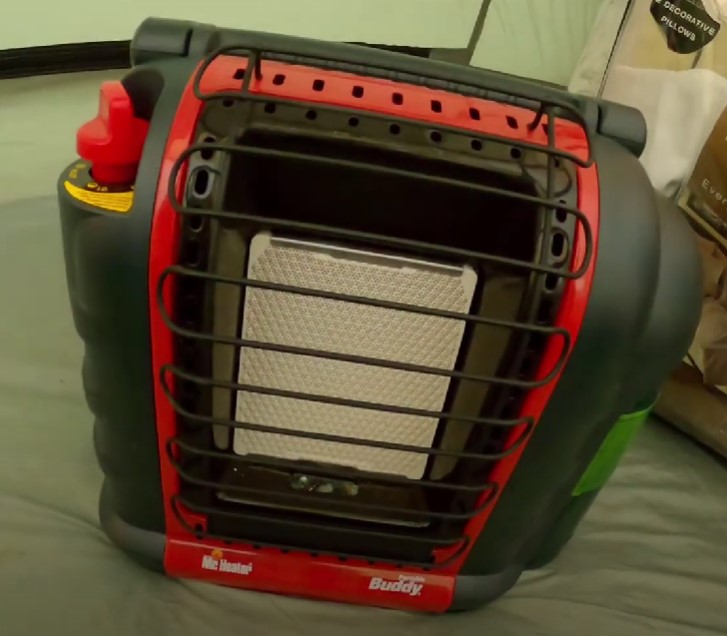When the chilly temperatures of winter set in, a space heater can provide cozy warmth to make your living spaces comfortable. But what if you find yourself in a situation where the power supply is unreliable or you’re off the grid?
In such cases, having the right generator to power your space heater becomes essential. This article will guide you through selecting the appropriate generator size to effectively run your space heater.
What Size Generator to Run Space Heater?
Choose a generator with wattage matching or exceeding your space heater’s requirements. For small heaters (up to 1500W), a 2000W generator offers a safe choice. Ensure capacity for any surge at startup. Inverter generators provide stable power. Always follow manufacturer guidelines and prioritize safety.
Understanding Space Heater Power Requirements
Space heaters come in various types, from compact electric heaters to oil-filled radiators and ceramic tower heaters. Understanding the power consumption of these devices is crucial in determining the generator size you’ll need. Most space heaters have wattage ratings that indicate the amount of power they require to operate.
Calculating Power Needs
Calculating the total power needs of your space heater is relatively straightforward. Look for the wattage rating on the heater’s label or manual. If you plan to run other devices simultaneously, factor in their wattages. Remember that some devices, including space heaters, might have a surge power requirement during startup.
Matching Generator Size to Space Heater
A general rule of thumb is to ensure that the continuous power output of your generator exceeds the wattage of your space heater. However, for space heaters with high starting surge power, such as those with a fan or heating element, consider choosing a generator with some extra capacity. Inverter generators are particularly useful in this regard, as they provide stable and consistent power output, suitable for sensitive electronics.

Generator Size Options for Common Space Heaters
Different space heater types have varying wattage requirements. For example:
- Compact Electric Space Heater: Wattage range of 750 to 1500 watts.
- Oil-Filled Radiator Heater: Wattage range of 700 to 1500 watts.
- Ceramic Tower Heater: Wattage range of 1000 to 1500 watts.
FAQ on running a space heater with a generator
Will a 1000-watt generator run a space heater?
Yes, a 1000-watt generator can typically run a small space heater. Most compact electric space heaters have wattage requirements between 750 to 1500 watts. Since a 1000-watt generator provides enough power to cover this range, running a small space heater should be sufficient.
However, it’s important to note that you should avoid running other high-wattage devices simultaneously with the space heater to prevent overloading the generator. Additionally, some space heaters might have a slightly higher power demand when they start. It’s a good idea to allow for a safety margin when using a 1000-watt generator with a space heater.
Always check the wattage rating of your specific space heater and the manufacturer’s guidelines before connecting it to a generator.
Will a 2000-watt generator run a space heater?
Yes, a 2000-watt generator should be able to run most small to medium-sized space heaters. Most space heaters on the market fall within the range of 750 to 1500 watts for their wattage requirements. A 2000-watt generator provides enough power to comfortably handle the wattage of these types of space heaters.
However, it’s important to consider a few factors:
- Starting Surge: Some space heaters might have a slightly higher power demand when they start up due to the initial surge required by fans or heating elements. A 2000-watt generator can handle this starting surge for most small to medium-sized space heaters. If the heater’s starting surge is not excessive, a 2000-watt generator should work well.
- Other Devices: If you plan to run additional devices alongside the space heater, factor in their wattages to ensure you’re within the generator’s capacity.
- Safety Margin: Having a safety margin of around 20% above the total combined wattage of all devices is a good practice to prevent overloading the generator and ensure stable operation.
Can a solar generator run a space heater?
Running a space heater with a solar generator depends on a few factors. Primarily the solar generator’s capacity and the space heater’s wattage requirements. Here’s what you need to consider:
- Solar Generator Capacity: Solar generators come in various sizes, usually measured in watt-hours (Wh) or kilowatt-hours (kWh). You’ll need a solar generator with sufficient capacity to meet the power demand of the space heater.
- Space Heater Wattage: Check the wattage rating of your space heater. Most space heaters fall within the range of 750 to 1500 watts. Ensure the wattage of your space heater is within the capacity of the solar generator.
- Inverter Capacity: Space heaters typically require a constant power supply, so you’ll need a solar generator with an inverter capable of handling the continuous wattage of the heater. Some space heaters might also have a higher starting wattage (surge) during initial startup, which the solar generator’s inverter should be able to accommodate.
- Battery Capacity: Solar generators use batteries to store energy. You’ll need to ensure the battery capacity is sufficient to provide power to the heater for the desired time. Remember that running a high-wattage device like a space heater can drain the battery quickly.
- Solar Input: If you plan to use solar panels to recharge the solar generator while running the space heater, consider whether the solar input can replenish the energy used by the heater in real-time.
- Sunlight Availability: The effectiveness of a solar generator depends on the amount of sunlight available. Cloudy days or limited sunlight affect the solar generator’s ability to simultaneously recharge and power the space heater.
Before attempting to run a space heater with a solar generator, carefully check the specifications of both the heater and the generator. If you need more clarification, consult the manufacturer’s guidelines or contact professionals with expertise in solar power systems.
Can a battery-powered generator run a space heater?
Running a space heater with a battery-powered generator is possible. Still, it depends on the capacity of the battery and the wattage requirements of the space heater. Here’s what you need to consider:
- Battery Capacity: Battery-powered generators (also known as power stations or portable power stations) use built-in batteries to store energy. The battery’s capacity is typically measured in watt-hours (Wh) or kilowatt-hours (kWh). You’ll need a generator with a sufficiently large battery capacity to supply the energy the space heater needs.
- Space Heater Wattage: Check the wattage rating of your space heater. As mentioned, most space heaters fall within the range of 750 to 1500 watts. Ensure the wattage of your space heater is within the capacity of the battery-powered generator.
- Inverter Capacity: Battery-powered generators come with inverters that convert stored DC (direct current) energy into AC (alternating current) energy. The inverter should have enough capacity to handle the continuous wattage of the space heater. Suppose the heater has a higher starting wattage (surge) during initial startup. In that case, the inverter should also be able to accommodate that.
- Battery Life: The runtime of the space heater depends on the capacity of the generator’s battery and the power draw of the heater. Divide the battery’s capacity by the heater’s wattage to estimate the approximate runtime. Remember that running a high-wattage device like a space heater will drain the battery more quickly.
- Recharging: Consider how you’ll recharge the battery-powered generator. Most models can be recharged using solar panels, wall outlets, or other power sources. If you plan to use the generator for extended periods, ensure a reliable recharging plan.
- Safety and Efficiency: Running a high-wattage device like a space heater might push the battery-powered generator to its limits. It’s important to monitor the generator’s temperature and ensure it doesn’t overheat during extended use.
best generator to run a space heater
Selecting the best generator to run a space heater depends on your space heater’s specific wattage requirements and intended usage. Here are a few generator options to consider based on different scenarios:
- Compact Electric Heater (Up to 1500 Watts): A 2000-watt portable generator should suffice for most compact electric space heaters. It provides a safety margin and can handle the starting surge of the heater.
- Oil-Filled Radiator Heater (Up to 1500 Watts): Similar to compact electric heaters, a 2000-watt generator should be sufficient for oil-filled radiator heaters.
- Ceramic Tower Heater (Up to 1500 Watts): A 2000-watt generator is a good choice for most ceramic tower heaters.
- Larger Space Heaters (1500 to 2000 Watts or More): If your space heater’s wattage falls in the higher range, consider a portable generator with a 3000 watts or more capacity. This ensures ample power for both continuous operation and starting surge.
- Inverter Generators: Inverter generators are well-suited for sensitive electronics, including space heaters. They provide stable and clean power, making them a great option to protect your heater and other devices from potential fluctuations.
- Battery-Powered Generators (Power Stations): Battery-powered generators can handle smaller space heaters with wattages up to around 1500 watts. Look for models with higher battery capacities for longer runtime.
Conclusion
Selecting the right generator size for running a space heater involves:
- Understanding your heater’s power requirements.
- Considering other devices in use.
- Prioritizing safety.
With the proper generator size, you can enjoy the warmth of your space heater even when facing power challenges.
Also Read:
- What Size Generator to Run Refrigerator & Freezer?
- What Will 1000 Watt Generator Run?
- Can Portable Generator Run Central Air Conditioner? (Yes!)
Recent Posts
Yes, synthetic oil can generally be used in generators. It offers superior lubrication, improved resistance to temperature variations, and longevity compared to conventional oil, which can enhance...
In today's digital age, our dependency on computers and other electronic devices is undeniable. But what happens when a power outage occurs? This is where generators come in. However, is it safe to...
